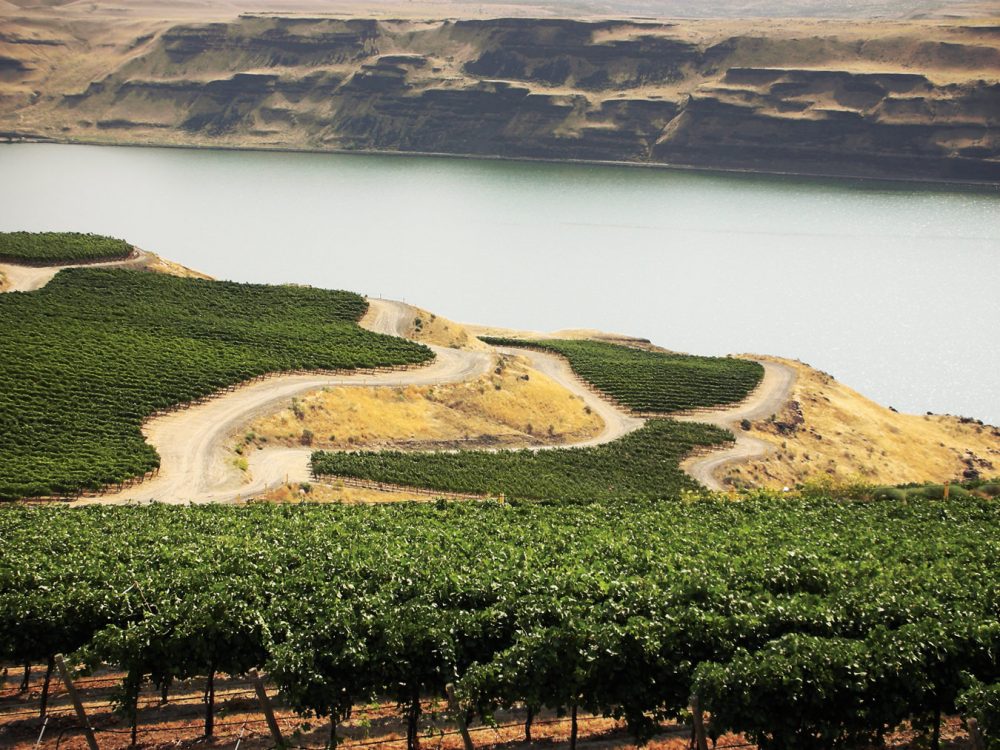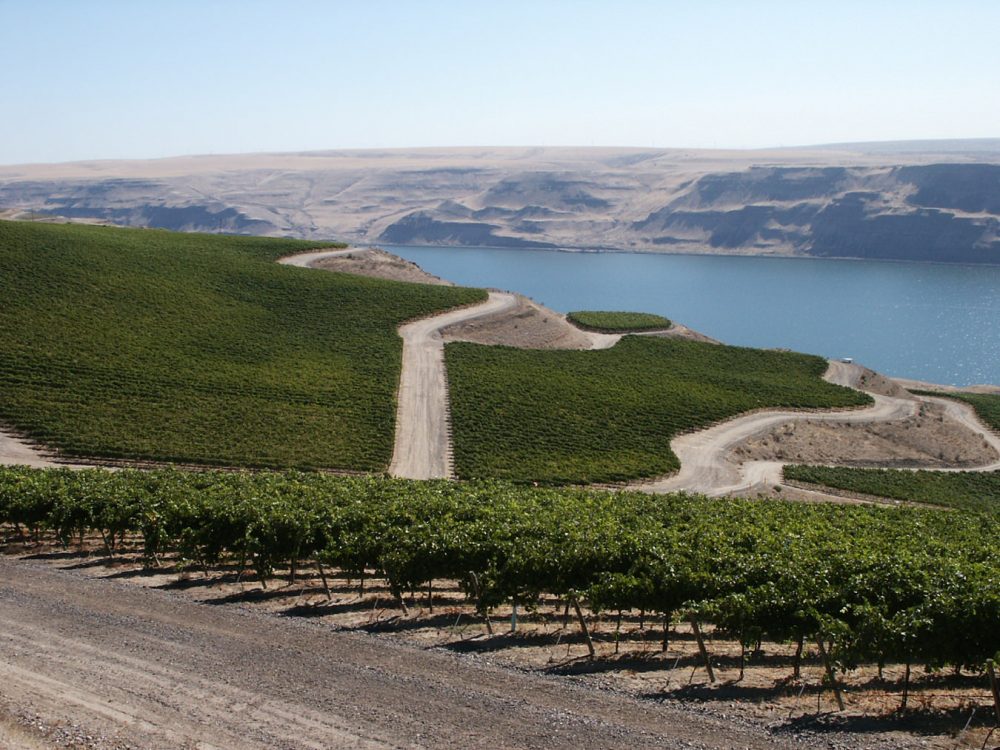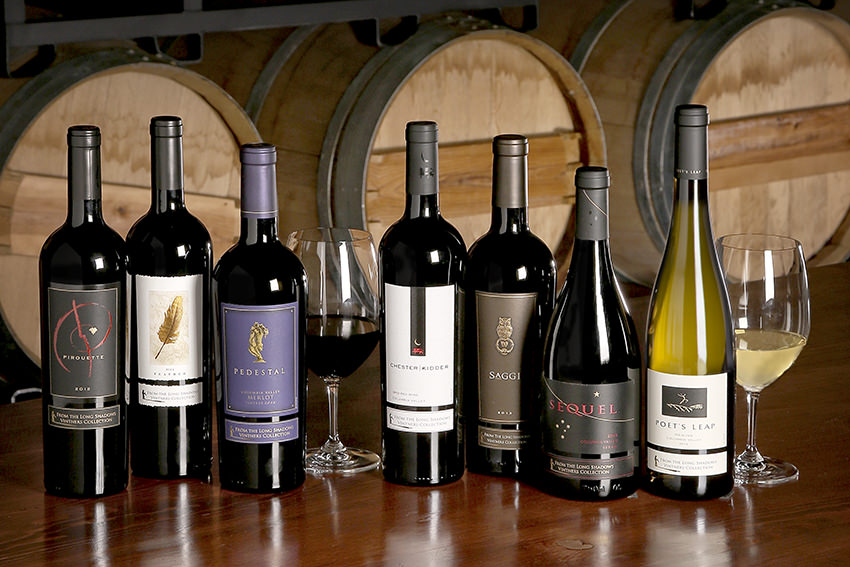A case-full of years have passed since Allen Shoup launched Long Shadows, a highly ambitious Walla Walla project designed to catch the wine world’s imagination. Preposterous is one way to describe the idea: seven acclaimed winemakers, who didn’t need any extra work, agreeing to work in the Pacific Northwest, with Shoup, to make a solo wine under the unknown Long Shadows moniker. It’s the kind of challenge Shoup thrives on, and one he embraces with enthusiasm every day—even at 72 years of age.
Shoup came out of the cosmetics and lumber industries, where he clearly honed his nose for the wine business. After two decades at Chateau Ste. Michelle, Shoup knew Washington was a great spot to make wine, sitting near the same latitudes of Bordeaux and Burgundy, but he was always frustrated when he mentioned Washington wine on the East Coast and people asked him “what side of the Potomac was he on”. Shoup took inspiration from good friend “Bob” Mondavi, whose partnership with Baron Philippe de Rothschild in the Opus One project conferred a great deal of prestige on Napa Valley. He wanted the same kind of validation for Washington State.
Collaboration was hardly new to Shoup; he had long ago brokered partnerships with Italian and German icons Giovanni di Piero Antinori and Ernst Loosen to put Ste. Michelle on the world map. Still, Long Shadows was a big risk. In the end, Washington needed global elevation—and what better way to accomplish it than to have internationally-renowned winemakers become Columbia Valley crusaders?
Shoup is one complex guy. His most important move early on was finding Long Shadows a resident winemaker who could handle the eccentricities and foibles of the group. Enter Gilles Nicault, director of winemaking and viticulture since Long Shadows’s inception in 2003. Nicault studied at the University of Avignon and made wines in the Côtes du Rhône, Provence, and Champagne before heading for Washington. After stints at Staton Hills and Hogue Cellars, he went to work for Rick Small at Woodward Canyon, where he rose to head of enology and production. Nicault had all the tools to fit into the Long Shadows plan, and it wasn’t long before he was working side-by-side with Shoup’s dream team, producing seven Columbia Valley wines, each representing the best of its type. The list reads like a who’s who of wine: Randy Dunn of Dunn Vineyards in Napa Valley makes Feather Cabernet Sauvignon; Michel Rolland of Pomerol, France’s Château Le Bon Pasteur does Pedestal Merlot; Agustin Huneeus and Philippe Melka of Quintessa in Napa Valley make Pirouette, a red Bordeaux blend; Armin Diel of Germany’s Schlossgut Diel makes Poet’s Leap Riesling; Ambrogio and Giovanni Folonari of the eponymous Tuscan winery Folonari produce Saggi, a cabernet sauvignon/sangiovese red blend; John Duval of Australia’s John Duval Wines and former Penfolds winemaker produces a syrah called Sequel; and Nicault’s wine, Chester Kidder, is named after Shoup’s mother and paternal grandmother.
Long Shadows is essentially a series of mini-wineries, allowing each wine to have its own identity. Shoup demanded the best product possible and gave each team the tools to make it happen—he only asked his partners to make no excuses. Drawing on his days at Ste. Michelle, Shoup put together a group to purchase The Benches (formerly Wallula Vineyards) in 2008 to serve as one of the providers of Long Shadows fruit. The 850-acre site is made up of 27 geologically formed benches, created 20,000 years ago by the great Missoula floods with an elevation change from 1,000 to 1,400 feet above the shores of the Columbia River. Boasting a series of unique micro-climates, it is home to 60 individual blocks producing 15 different grape varieties. All of the vineyards are farmed sustainably, with 150 acres biodynamic.
Long Shadows wines have a lot of curb appeal among knowledgeable folks who clearly are interested to see how the outsiders, using grapes they know well, interpret Columbia Valley fruit. Best of all, Shoup’s long-term strategy to put together a stable of international superstar winemakers, talking about and pouring Washington State wine around the world, is validating the Columbia Valley and Walla Walla in new ways. In a business where the company you keep and the wine you drink says a lot about who you are, Shoup is a player of the first order, and one with a very long shadow.
_______
Read more Wine stories here.

















